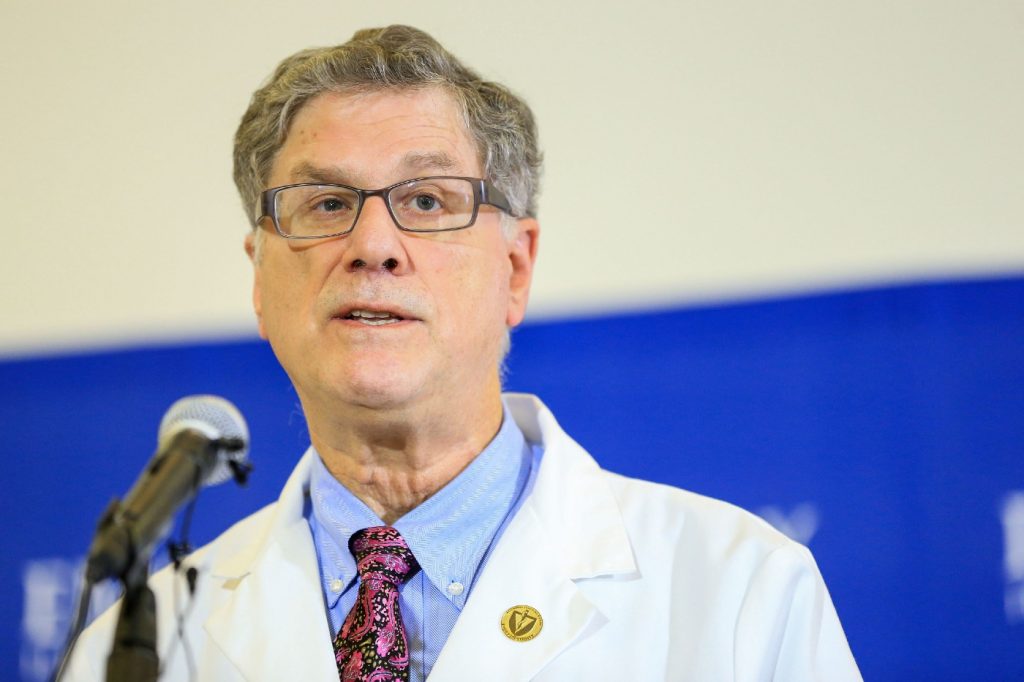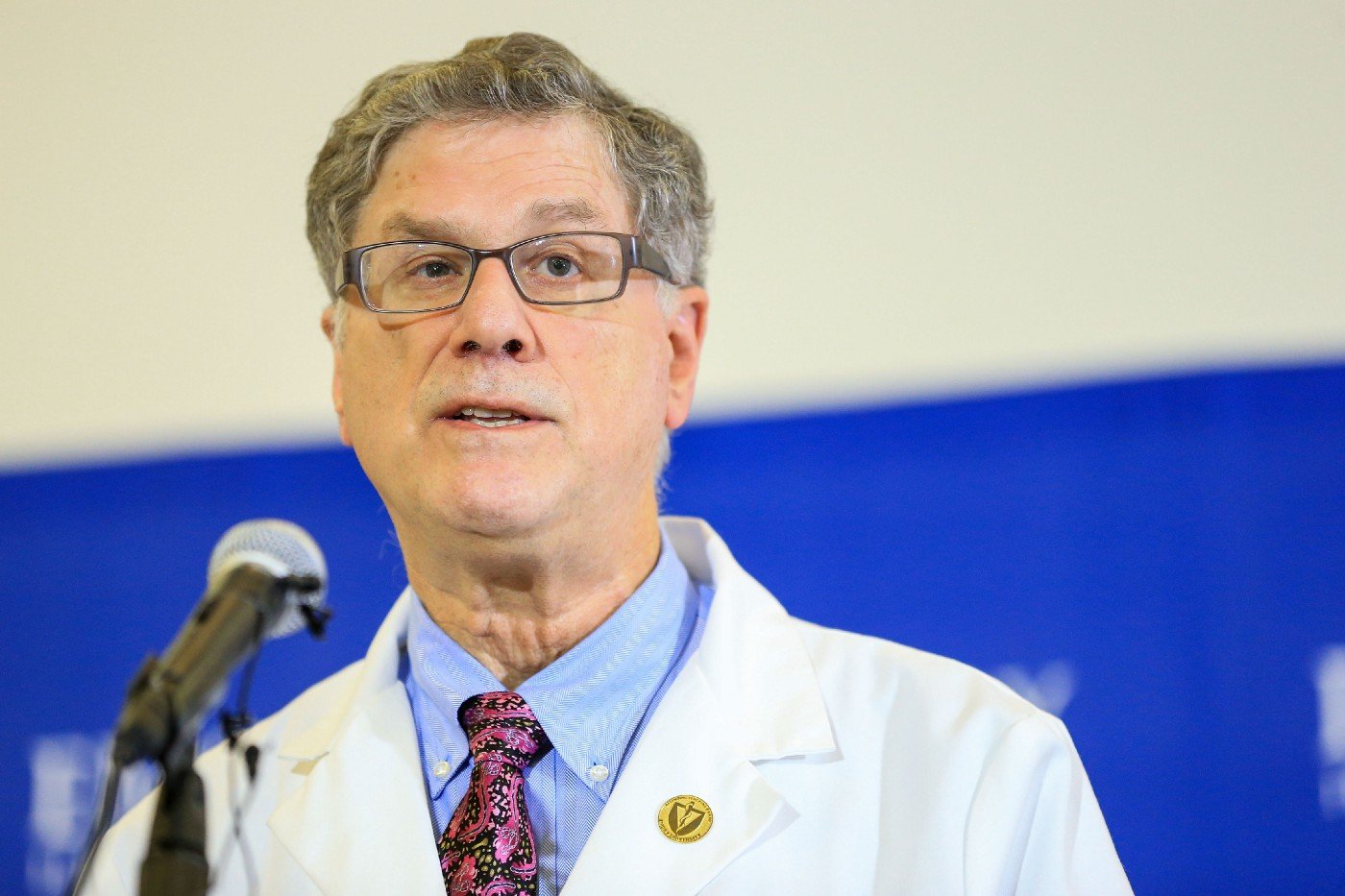Dr. Bruce Ribner, who successfully treated multiple Americans with Ebola in 2014, offers perspective on Covid-19

There’s little denying that the United States was ill-prepared for the coronavirus pandemic. Testing capacity is still staggeringly slow, health workers don’t have enough protective equipment, and there are not enough ventilators. But the United States is not without scientists and medical professionals who think ahead.
During the 2013–2016 Ebola outbreak, I had the opportunity to visit and interview Dr. Bruce Ribner, medical director of the Serious Communicable Diseases Unit at Emory University Hospital. In 2014 he led the treatment of multiple people in the United States who contracted Ebola, in large part because Emory had a state-of-the-art isolation unit that was built specifically for the treatment of highly contagious infections. The unit was something Ribner had advocated for for more than a decade before the Ebola pandemic. He knew it was only a matter of time before a new, highly contagious disease spread around the world, and that the United States would need a place to treat people.
“It is certainly possible to overreact to a potential epidemic, but we seem to be a long way from overreacting to the current epidemic.”
“Over the last several years, there were people questioning whether what I was doing was really something that had value,” Ribner told me in a November 2014 profile for TIME, adding that he felt like Noah building an ark for a storm no one thought was coming. Then the Ebola outbreak happened, and it was clear that his preparation paid off, and saved American’s lives.
The novel coronavirus is a different kind of beast. It spreads more effectively than Ebola, and there are tens of thousands of people in the U.S. already infected. Still, it’s helpful to talk to someone who expects the worst about what’s to come. Here’s what Ribner has to say about Covid-19.
Elemental: In your opinion, what should Americans expect in the coming weeks in terms of spread and containment measures?
Ribner: In the next few weeks we should anticipate continued spread of the SARS-CoV-2 virus. One hundred percent of the population is susceptible, and the virus is highly contagious. The exact percentage of the population that will become infected is difficult to predict at this moment due to ongoing containment efforts, but estimates range from 20% to 60% of the population. It is also likely that we are talking months, not weeks, of ongoing infections occurring.
Since containment efforts are a political decision, they are also somewhat difficult to predict. Current efforts, including the closing of schools, restaurants, and other places where people congregate, will have an impact on the spread of the infection. The questions will be — how long people are willing to tolerate and governments are willing to impose these measures given the enormous impact on the economy. However, China has clearly shown us that these measures can work if enforced.
When you first created the treatment center at Emory, not everyone was on board. People thought it was an overreaction. Is it even possible to overreact to a potential epidemic these days?
It is certainly possible to overreact to a potential epidemic, but we seem to be a long way from overreacting to the current epidemic.
Do you see any lessons from the 2014 Ebola response that could be applicable here?
The 2013–2016 Ebola outbreak taught us that failure to prepare for outbreaks and epidemics leads to a delayed response and excessive numbers who become infected. Unfortunately, we did not learn that lesson well. Since 2016 we have seen successive cuts in funding for public health and biocontainment efforts. Even the recent response has been slow and initially underfunded. We would have been much further along in controlling this epidemic had we learned the lessons of being prepared.
Are there specific response measures you would like to see happen in the United States?
Recent activities, although belated, are very encouraging. We are again seeing the resources devoted to public health, vaccine development, medical countermeasures, and biocontainment that we should have seen over the past few years. Social interaction has been strongly discouraged. While these efforts will ultimately be successful, we would have been much further along had we learned the lessons of the Ebola outbreak.
Is there progress that gives you hope?
It is likely that we will not have real control of this epidemic until we have an effective vaccine. In that regard, the efforts being devoted to vaccine development are encouraging. It is also encouraging that we already have clinical trials in place to study antivirals that may offer benefit to our sickest patients.
As someone who has been on the treatment front lines of a serious virus, and led a team of doctors and health providers, what advice do you have for the health care workers on the front lines for Covid-19?
My advice would be to firstly be safe: We cannot control an epidemic if our health care workers become infected. While there is some risk for health care workers in caring for infected patients, it is likely that most will become infected outside of the workplace. So measures being promulgated by the CDC, such as social distancing, hand hygiene, and avoiding putting your hands to your face, must become a continuous part of everyone’s life.
My second bit of advice is that everyone should plan for this epidemic to last for months, not weeks. While health care workers devoting long hours to the care of the sick are admirable, they are not sustainable and will only lead to burnout and frustration. Everyone should establish a work pattern that they can sustain for several months.
